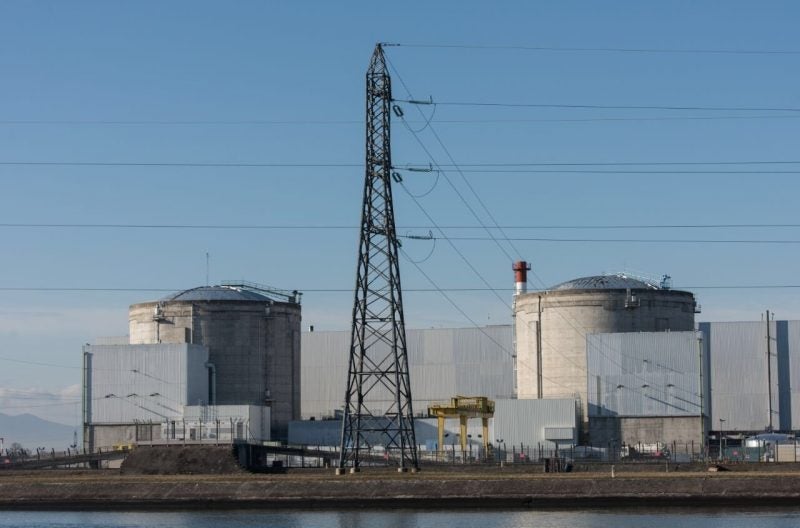
The French Government is to initiate a shutdown of the first reactor of the EDF-owned Fessenheim plant, the country’s oldest nuclear power plant, after 43 years of activity.
Dismantling operations for reactor 1 will begin on 22 February, as a step towards the plant’s complete shutdown on 30 June.
Environment minister Elisabeth Borne said yesterday in an interview: “It has been years since we talked about shutting down Fessenheim and no previous government had ever made the decision. Now the decision has been made, the Prime Minister signed the decree and it appeared this morning on the government’s gazette.”
Closing down Fessenheim, situated in the Grand Est region of France near the border with Germany, was seen as a proof of President Emmanuel Macron’s commitment to sustainability and progress towards in the country’s energy transition.
“It is a first step in France’s energy strategy, which aims to gradually rebalance between nuclear and renewable electricity while continuing to reduce greenhouse gas emissions from electricity production by closing coal-fired power plants by 2022,” said the government in a press release.
According to energy and nuclear policy analyst Mycle Schneider, even though the nuclear sector, including all EDF nuclear plant directors, signed a petition opposing the move, Fessenheim is simply too inefficient to operate.

US Tariffs are shifting - will you react or anticipate?
Don’t let policy changes catch you off guard. Stay proactive with real-time data and expert analysis.
By GlobalDataSchneider told Power Technology: “The units had a miserable lifetime load factor of < 66% and France has a huge overcapacity, allowing the country to export 56 terawatts hour (TWh) net to its neighbouring countries in 2019.
“In reality, it is a first step to adapt the unbalanced power system better to the reality of the market. Closing the least productive units and focus back fitting on the best ones is, after all, a logical decision to take.”
Greenpeace France said in a press release that the plant has already exceeded its designed operating life and even if renovated would not meet safety requirements and could be a hazard for the territory and populations.
Greenpeace France energy campaign manager Alix Mazounie told Power Technology: “After 43 years of use, shutting down the Fessenheim power plant is absolutely necessary. But by 2025, more than two-thirds of French nuclear reactors will have reached 40 years of operations.
“To protect populations and allow the socio-economic reconversion of the territory and the workers, the French Government must establish a schedule for shutting down old nuclear reactors”.
The French Government and EDF signed on a protocol on 27 September 2019 under which the government would reimburse EDF with €400m for the expense of closing the plant and will compensate the energy provider for any loss of revenue until 2041.



